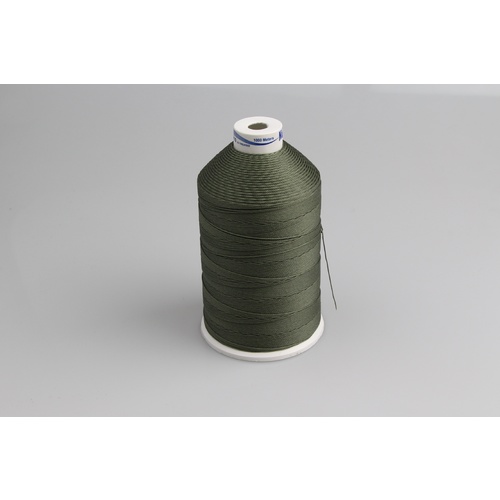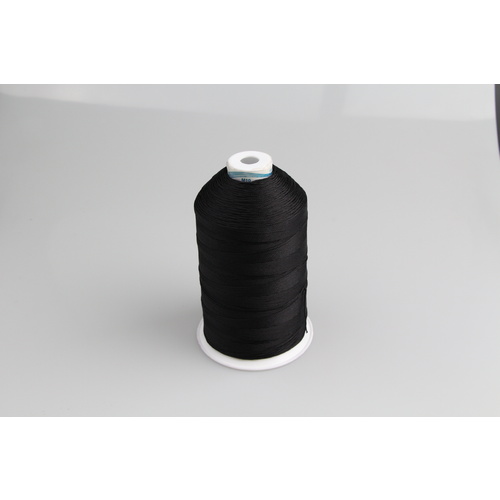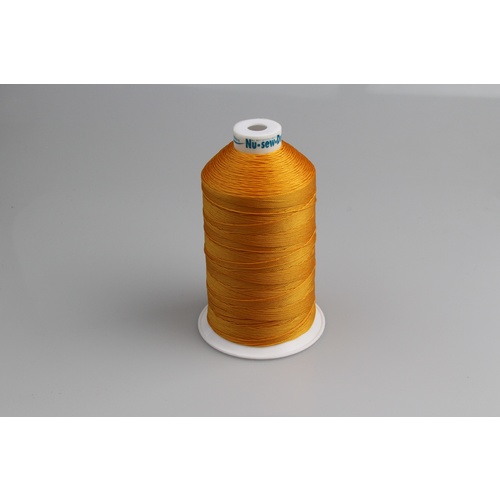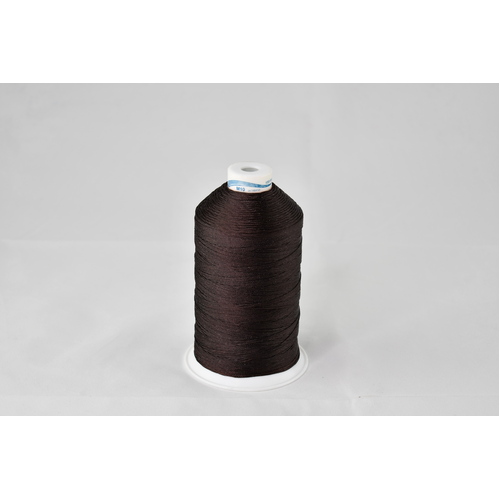HEAVY-DUTY SEWING THREAD
When it comes to sewing, the choice of thread can make or break your project—especially when you're working with thick fabrics or materials that demand serious durability. That’s where heavy-duty sewing thread comes in. Whether you’re repairing outdoor gear, creating canvas awnings, or stitching leather accessories, using the right thread for heavy-duty sewing ensures your work stands up to wear, tear, and the Aussie elements.
Let’s dive into what makes heavy-duty sewing thread essential for robust sewing projects and how to choose the best one for your needs.
What is Heavy-Duty Sewing Thread?
Heavy-duty sewing thread is exactly what it sounds like—a thicker, stronger, more resilient type of thread designed to handle challenging materials and heavy loads. Unlike standard polyester or cotton thread used in garments and home décor, heavy-duty threads are engineered to resist breaking, fraying, and stretching under pressure.
They’re commonly made from strong synthetic fibres like polyester, nylon, and even Kevlar, and are often treated for UV-resistance, water-repellency, or mildew protection—features that make them ideal for use outdoors or in demanding industrial environments.
Why Use Thread for Heavy-Duty Sewing?
While it might be tempting to use your everyday thread for a rugged task, it’s important to match the thread to the job. Here's why:
1. Strength and Durability
Heavy-duty threads are designed to withstand high tension and heavy wear. When you’re sewing items like camping gear, boat covers, or workwear, you need a thread that won’t snap under pressure.
2. Longevity
A thread for heavy-duty sewing is often treated to endure UV rays, rain, and high-stress environments. That means your project will hold up over time, even in harsh Australian climates.
3. Professional Finish
Using a suitable thread not only improves the structural integrity of your work but also gives it a clean, professional appearance. Thick, even stitching with a strong thread shows quality craftsmanship.
Applications of Heavy-Duty Sewing Thread
Heavy-duty sewing thread has a wide range of applications, both domestic and industrial. Here are some common uses:
- Canvas and Upholstery: From caravan awnings to outdoor furniture, thick fabrics require strong thread that won’t degrade easily.
- Leather Goods: Wallets, bags, belts, and saddles all need thread that won’t fray or break over time.
- Automotive and Marine: Car seats, convertible roofs, boat sails, and covers require UV and water-resistant thread.
- Workwear and Safety Gear: Industrial uniforms and protective clothing often rely on reinforced stitching for durability and safety.
- Tents and Outdoor Gear: Threads must withstand constant movement, tension, and weather exposure.
Choosing the Right Thread for Heavy-Duty Sewing
Picking the right thread depends on your material, environment, and usage. Here are some key considerations:
1. Material
- Polyester: A good all-rounder, ideal for both indoor and outdoor use. It’s UV-resistant, strong, and slightly elastic, making it great for tents, tarps, and outdoor gear.
- Nylon: Extremely strong and slightly more elastic than polyester. Perfect for leatherwork and high-tension applications but may degrade under UV over time.
- Cotton-wrapped Polyester: Offers a traditional look with synthetic strength. Great for decorative stitching on heavy fabrics.
2. Thread Size / Weight
Heavy-duty threads come in a range of sizes. In general, the higher the number, the thinner the thread. For thick applications, you’ll want a lower number (e.g., 20 or 30). Always match the thread weight to your needle and fabric.
3. Coating and Finish
Look for threads with extra coatings if your project will be exposed to harsh conditions:
- UV-resistant for outdoor applications
- Water-repellent or mildew-resistant for marine or tropical use
- Bonded thread for added abrasion resistance
Sewing with Heavy-Duty Thread: Tips for Success
Sewing with thick, strong thread requires a few adjustments:
1. Use the Right Needle
Choose a heavy-duty needle (size 16/100 or larger) to handle the thicker thread and material. A leather needle or denim needle can help penetrate heavy fabric cleanly.
2. Adjust Tension Settings
Heavy-duty threads may require changes to your sewing machine’s tension settings. Test on a scrap piece first to avoid skipped stitches or thread breaks.
3. Slower Speed, Steady Hands
Slowing down your stitch speed can help prevent jams and ensure even stitching. Precision is key when working with tougher materials.
4. Consider Thread Lubrication
Some heavy-duty threads come pre-lubricated to reduce friction and wear on your needle. If not, using a silicone-based thread lubricant can be helpful for smoother sewing.
Caring for Projects Made with Heavy-Duty Sewing Thread
Proper maintenance helps extend the life of your hard work:
- Wash with mild detergents and avoid harsh bleach.
- Store outdoor gear in dry areas to prevent mildew, even if the thread is mildew-resistant.
- Inspect seams periodically for signs of wear and re-stitch if necessary.
Sustainability and Eco-Friendly Options
As sustainability becomes a bigger focus in both home sewing and industry, manufacturers are offering eco-conscious heavy-duty threads. Some are made from recycled polyester or designed with minimal environmental impact in mind. Choosing sustainable threads not only supports the planet but also offers peace of mind that your project contributes to a more responsible textile future.
Buying Heavy-Duty Sewing Thread in Australia
Australia has a growing community of makers, upholsterers, and industrial professionals, and finding quality heavy-duty sewing thread has never been easier. Many local suppliers stock a wide range of colours, materials, and sizes suited to both hobbyists and professionals.
Whether you’re shopping online or at a local fabric store, always check product specs and reviews to make sure the thread suits your project.
No matter the scale of your sewing project—be it repairing a caravan cover or crafting a bespoke leather bag—heavy-duty sewing thread is the hidden hero that keeps everything together. Choosing the right thread for heavy-duty sewing isn’t just about strength; it’s about ensuring longevity, function, and professional quality.
So next time you're planning a rugged sewing job, remember: your thread matters. Invest in quality, choose the right weight and fibre, and take pride in your craftsmanship. You—and your projects—deserve it.
Sewing Threads at Vardhman A&E Threads
If you're looking for high-quality sewing threads for your heavy-duty sewing projects, Vardhman A&E offers a premium selection. Whether you need Gutterman Mara 30 or heavy-duty bonded polyester thread, we provide reliable options to suit your needs.
Why Choose Vardhman A&E?
- High-quality materials – Threads designed for durability and professional results.
- Wide range of options – From polyester to waxed linen threads.
- Trusted by professionals – Used in industries like automotive, fashion, and saddlery.
When working with heavy-duty sewing projects, investing in the right sewing thread ensures your project stands the test of time. Visit Vardhman A&E to explore their range of sewing threads today!










